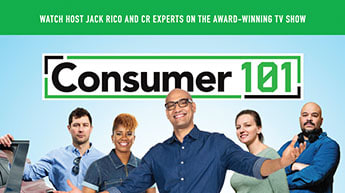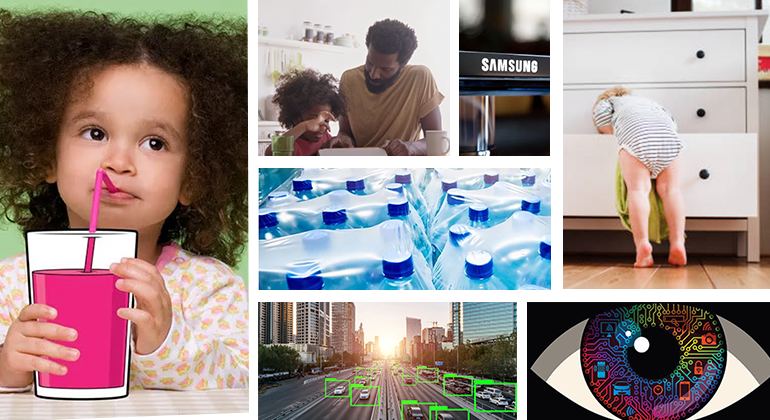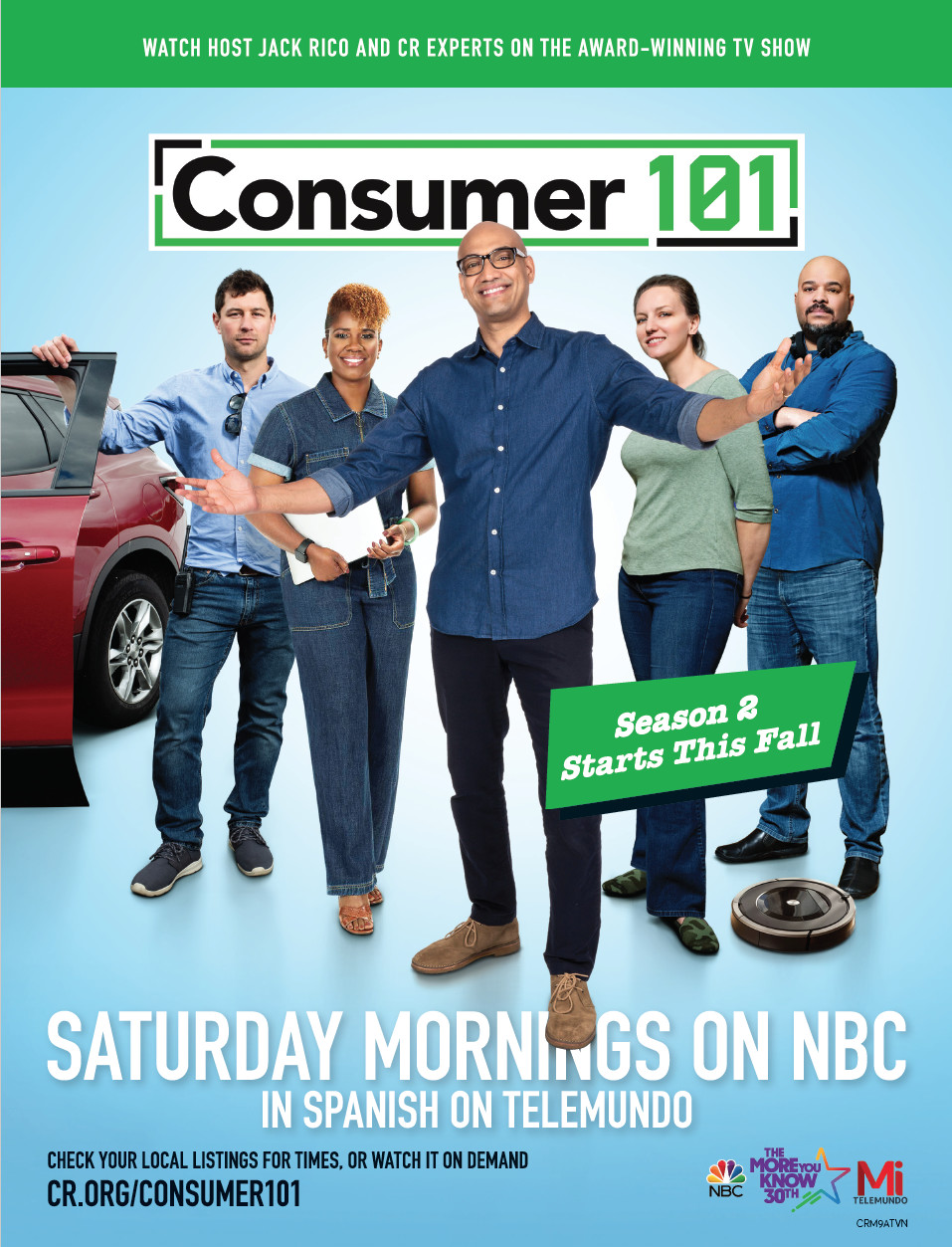In a speech delivered at Vanderbilt University more than half a century ago, President John F. Kennedy shared that "liberty without learning is always in peril, and learning without liberty is always in vain." That maxim has always been true when it comes to the decisions we make in the marketplace: If we can't learn the truth about products and services, then the supposedly free choices we make aren't really free—and if our choices are limited, then no amount of information will result in a fair exchange.
Learning and liberty—or, as we might put it, truthful information and free choices. Today, unprecedented changes in the marketplace have put both our information and our choices at risk like never before. The digital era is careening ahead at breakneck speed, creating unseen threats to privacy and security while outpacing our ability to set meaningful and responsible standards. The quality, safety, and integrity of our products—from toys to appliances to cars—are increasingly determined by millions of lines of code we can't see or understand. More and more of our decisions are being made on digital platforms that narrow and filter our choices without our direct control, using complex algorithms that may not serve our best interests. And in an age of endless information, it has become harder than ever to know what and whom we can trust.
It's time to acknowledge the truth: We've arrived at an entirely new inflection point in the long relationship between people and the forces that shape the marketplace. Reality has become obscured by a digital veil; the purchasing decisions we make today, however large or small, are accompanied by a fundamentally different set of challenges than those we have encountered in the past. And for Consumer Reports, making a positive impact on behalf of American families isn't as simple as it once was. There was a time when it wasn't so difficult to seek out expert information and confidently navigate the decisions of the day. Now, the unbelievable sophistication of products, the rise of powerful platforms that share information and options on their own terms, and the firehose of unvetted information at our fingertips have permanently changed our realities.
How can we stand up together in a moment like this to put people first? That's a question the CR team grapples with every day—and it's why we launched our groundbreaking Digital Lab this year. The Lab represents a bold new approach to advancing and protecting consumer rights in the digital era; it's a way for us to help level the playing field for consumers in the face of Silicon Valley's extraordinary power. This effort will allow us to power up the digital testing and investigatory work we've embarked on in recent years—work that saw us uncover algorithmic racial bias in car insurance premiums, expose inconsistencies in Facebook's facial recognition settings, identify security flaws in smart TVs and mobile payment apps, and secure landmark digital privacy laws in California and elsewhere.
This work would not be possible without the generosity of CR's longtime supporter and former board member, Craig Newmark, who provided the single largest gift in our 83-year history to help get the Digital Lab up and running. This year was also marked by significant support from organizations like the Alfred P. Sloan Foundation, the William and Flora Hewlett Foundation, and the Ford Foundation, to say nothing of thousands of individual CR supporters. Their support of our nonprofit mission is a testament to the timelessness of our values and the urgency of the issues we now face.
We know that standing up for consumers in 2019 and beyond requires us to do more than just identify physical hazards—although that will always be an important part of our work. It also requires us to root out the hidden threats that accompany the incredible advances and conveniences of new technology. It requires us to test for privacy, security, data sharing, hacking susceptibility, and so much else that can't be seen with the naked eye. Most of all, it requires us to stay ahead of that innovation by testing and fighting for evidence-based standards—to put guardrails in place to ensure that, as technology speeds along, it moves in a direction that puts people first.
But the speed of today's marketplace also requires us to share with and influence designers and engineers early on in product cycles, so that the course of innovation can be guided by consumer perspectives and values. That's why we recently launched a new marketplace change program we call CR Data Intelligence. This program unleashes the power of CR's consumer-driven insights to fuel change and innovation, shaping the marketplace in favor of people in a whole new way. We call that "upstream impact"—and our goal is to foster the development of products, standards, and policies that prioritize safety, security, performance, and quality for consumers.
Our success in fulfilling our mission comes down to the impact we make on people's lives. That starts with growing the ways we reach and connect with people wherever they are.

This year we took big strides by launching a weekly network TV series, "Consumer 101", and the Spanish-language "Taller del Consumidor", which began airing on Saturday mornings on NBC and Telemundo, respectively, and streaming on Hulu and other platforms. The first season of "Consumer 101" reached about 1 million viewers each week and netted CR a Parents' Choice Award. The show also spawned a new Facebook group of more than 40,000 people—a community of consumers who actively support and help each other navigate the marketplace. Needless to say, we're excited for season two. We're continuously working to bring our mission to new audiences—to share the learning and liberty of free, informed choices to every community—and that work will go on as we expand our presence across a wide variety of platforms.
Building awareness and trust is vital, but, ultimately, we can't achieve true impact without durable victories and systemic change. At CR, we measure our impact by tangible successes—even as we equip consumers to bend the marketplace toward greater fairness and safety over the long haul.
Our commitment to tackling the hidden threats of the digital world led to moments of impact this year. Our innovative testing exposed hackable flaws in a number of connected products, leading to security and design improvements from Samsung and other companies. We helped drive structural change in the physical world as well. That was especially true when it came to another vital, opaque area of our lives: the American food system. Our focus on the integrity of the food we eat led to new revelations this year about the presence of arsenic and lead in our fruit juice and bottled water.
That work is a critical part of achieving systemic reform, but just as valuable is the work we do to build safety, confidence, and peace of mind. After all, what could be more impactful than helping to make a family feel safer in their own home?

This year, our investigation into the Fisher-Price Rock 'n Play Sleeper prompted congressional hearings and a major recall after a tragic number of infant deaths. CR was also proud to work closely with Parents Against Tip-Overs, a group of mothers and fathers whose young children have been injured or killed by furniture tipping over unexpectedly. We brought our investigating, testing, and advocacy to bear to help pass Harper's Law, a bill signed by the governor of New York in August. The law sets responsible new stability standards for the sale of furniture in order to reduce tip-over accidents, which have killed hundreds of children and which injure an American every 17 minutes, on average. Most importantly, we expect that this state law will serve as a model for the country—bringing greater safety to an everyday part of our lives that once carried a hidden threat.
Those stories all made headlines and sparked conversation on social media, to be sure. But the real impact is in the children saved, the families made healthier, and lives made more secure by the lasting outcomes of that work. That impact is generated when we set the bar and demand new standards where they don't exist, and incentivize industry to adhere to them with new laws and the power of consumer choice and voice.
I'm proud of the impact we make with and for consumers every day, whether we're cracking the code of today's most complex technologies, or fighting alongside parents to make our children safer at home. The challenge, however, is that the work of our mission is ongoing. The pace of marketplace change is always increasing, as corporations cut corners on our safety and well-being, and government watchdogs lean back when they should be leaning forward on our behalf.
In that same speech at Vanderbilt, President Kennedy also said that "only an educated and informed people will be a free people," and reminded us of our obligation "to encourage the pursuit of learning, to promote exploration of the unknown, to preserve the freedom of inquiry, [and] to support the advancement of research." He knew then, as we see now, that our knowledge is bound up with our freedom—that our ability to make free, informed choices is a core democratic right, and one that we must protect and fight for as ardently as we do our other civil rights. That's why we'll keep pushing hard for norms, standards, rules, laws, discoveries, and so much else that will offer firm and lasting ground to support us amid a shifting landscape. CR will continue to fight for fairness and transparency in our brave new world—we'll continue to stand with and for consumers.

Marta L. Tellado, Ph.D.,
President & CEO of Consumer Reports




